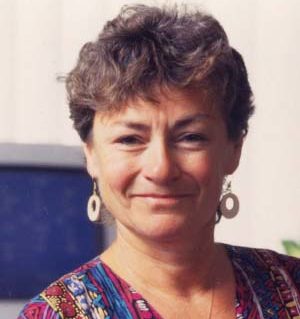By Sarah Watamura, Professor and Chair, Department of Psychology
Professor Emerita of Psychology Susan Harter passed away on September 30, 2020. Across her career, Susan was a trailblazing psychologist, earning her PhD from Yale in 1966. She was a professor at Yale from 1966-1974, as an assistant professor from 1966-1970, and then as an associate professor from 1970-1974. During her time at Yale, she was also the Chief Psychologist at the Yale Child Study Center. She joined the University of Denver in 1974. She served as a professor of psychology at DU and the head of the developmental psychology program for many years. In that role, and in collaboration with others, she received consistent external support for training grants and research with a vibrant community of trainees. During her tenure, she received the University’s highest faculty honor, the Distinguished University Professor Award (formerly called the John Evans Award), as well as the University Lecturer of the Year Award.
Susan’s research gained national and international recognition and influence. Her prominence as a female scholar in the late 60’s and across subsequent decades when the field was still largely dominated by men was notable and thrived via her indefatigable spirit. Her work on the concept of the self was groundbreaking and is still treated as canonical truth. Her work illustrated that the self is fragmented — that we actually have multiple selves, depending on the context and developmental stage. Her work highlighted that different aspects of the self can vary in their importance, and she integrated cognitive and social aspects of the self at a time when these approaches were emerging. She was an early proponent of directly examining the intersecting influence of individual and developmental differences — well ahead of its time. She is well known for the instruments she developed to assess the self, including in young children — indeed, her scales have been used in hundreds of studies across the globe. She was an early leader in what we talk about now as our public good focus — applying her research concepts and methods to schools and the everyday lives of children and youth. Susan also contributed to the literature on gender issues and on school violence. She had both developmental and clinical degrees — and her approach and training are woven into the culture of the department — where so much of our work is an integration across traditional areas and applied to real experience. She was a prolific author of journal articles and book chapters, and her acclaimed book The Construction of the Self provides an accessible account of her decades of research.
She was known by her colleagues to be a spirited and invested leader. Being a woman during this time in the field was not easy. She was brilliant, insightful and quick — making every intellectual exchange interesting, and she was deeply committed to training students. To this day — and many years since her retirement — we still ask “her” question during recruitment of all our prospective trainees: “What is your burning question?” This focus on the drive for discovery as the heart of the purpose of the long and challenging road of a Ph.D. program is one of the ways she has left a permanent mark on our culture.
In collaboration with her family, we had identified some materials in her home to archive and will also work through the collection in her office to illustrate her long and distinguished career. For me personally, the loss of Susan to the Department and the University are significant and her passing leaves a space not easily filled. The sadness of her passing is only tempered by the knowledge that her influence will continue. Together we will determine a way to honor her legacy moving forward. At this time I do not have an address or process for sending your individual condolences to her family; however, please reach out to swatamura@du.edu if you would like to do this and I will connect you as soon as I know more.


